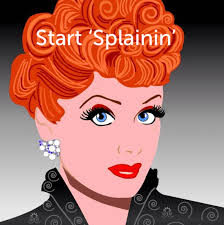Is the Cowlitz “prefix” yəx- actually a Chinuk Wawa numeral?
The entry yə́xa, yə́x- ‘only, nothing but’, in M. Dale Kinkade’s 2004 “Cowlitz Dictionary and Grammatical Sketch”, has got me asking for some explanations…

Image credit: Action Plan Marketing
(You can look at the entry for this item in the totally excellent online version of that dictionary, provided by the Cowlitz Tribe.
And here’s a link to the 200 or so articles on my site that involve Cowlitz.)
The only examples of it that Kinkade gives have yəx- connected with loaned nouns from Chinook Jargon. (lasúp ‘soup’ and saplə́l ‘bread’.) Here’s how those examples are written & translated in that dictionary, plus my own word-for-word “glosses” (you can listen to these at the online dictionary):
- yəx√lasúp tan t ʔacwé•x̣
ONLY- soup now some*= exist*
‘There’s nothing but soup left.’ - míłta t ʔitám yəx√saplə́l tan
not some*= thing ONLY- bread now
‘There’s nothing but bread left.’
So there’s what we know about the prefixal yəx-. No explanation is given in the dictionary for its citation of an apparently free (unbound, non-prefixal) variant yə́xa. We’ve got some ‘splainin to do if we think a single morpheme in a language occurs in two different syntactic functions! As a rule in my typologically-informed linguistic research, I take similar (although in many cases obviously etymologically related) affixes & “words” to be separate items, each needing its own dictionary entry.
The sound written as a plain x in Cowlitz is very rare in modern Salish languages. (It historically changed into š.) Cowlitz does in fact retain more of this sound than its close sisters have done. But also, the presence of an x can often indicate a word borrowed from some language where it’s much more common. I haven’t found any cognates in the sister SW Washington (“Tsamosan”) Salish languages, even when I look for possible versions like yəš-, yiš-, yaš-, yuš-, or even yəx̣-, yix̣-, yax̣-, yux̣-.
Chinookan and Chinook Jargon both have plain x. And, they have íxt ‘one’. Which they use in expressions of ‘only’, such as CJ’s kʰəpít-íxt. (Literally ‘only-one’.) The Jargon would express ‘just soup/nothing but soup’ as kʰəpít-íxt lasúp, and the same structure would be used with ‘bread’.
It’s not a huge stretch of my imagination to think that Cowlitz speakers, who we know were heavy users of creolized Chinuk Wawa, might have imported the quite common CW expression of ‘only’, e.g. kʰəpít-íxt lasúp, into their Salish language, and simplified it to (ʔ)ix lasúp, and so on. This exact form ix is listed in the 2012 Grand Ronde Tribes dictionary as a common variant pronunciation in CW! And within Salish, a word starting with (ʔ)i… routinely will vary with yə…, which would give us the Cowlitz yəx-. Which should be pronounced like [yιx].
I have the idea of this unusual Cowlitz form perhaps being a borrowed, and simplified, version of Chinookan/Chinuk Wawa íxt.
So I’m going to add it to the latest version of a paper I published in 2018 that documents numerous previously unidentified borrowed words in Cowlitz Salish.
